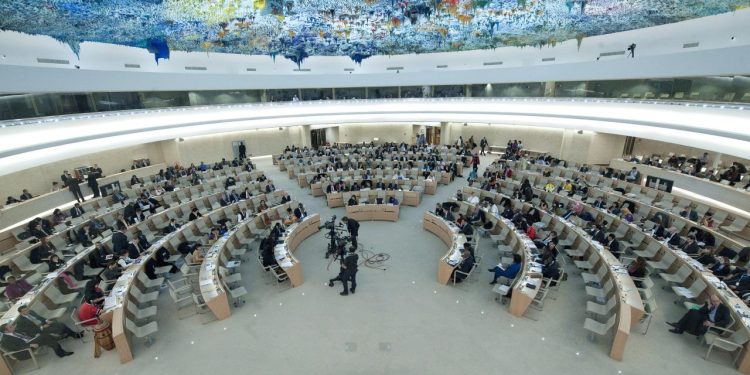On July 7 the U.N. Human Rights Council approved without dissent a resolution stressing the close link between the advancement of human rights and the fight against corruption. It unequivocally and without qualification proclaims what advocates of each have long recognized:
“the promotion and protection of human rights and the prevention of and fight against corruption are mutually reinforcing;”
- Human Rights Council REsolution 59/6
Importantly, the resolution spells out how corruption fighters and human rights advocates can work together to achieve the two objectives. And to further this cooperation, it mandates:
- A comprehensive, new study by the Human Rights Council Advisory Committee to develop concrete guidelines for implementing States’ procedural and substantive human rights obligations in the context of preventing and combating corruption, with broad consultation of stakeholders, including civil society.
- The encouragement for Human Rights Council mechanisms to consider corruption’s impact within their existing mandates.
- Stronger policy coherence across United Nations processes in Geneva, Vienna, and New York on corruption and its human rights implications.
The resolution’s passage is the latest effort by the UNCAC Coalition, a global network of almost 400 civil society organizations in over 120 countries, to foster ties between those working to advance human rights and those fighting corruption. Its other work towards this end includes:
- The creation of the Working Group on Human Rights and Corruption, co-chaired by Andrea Rocca of Transparency International and Betina Pasteknik of the UNCAC Coalition, has established a vital platform for advancing a comprehensive approach to human rights and anti-corruption efforts at both the policy and practical levels. The Working Group brings together over 230 experts from around the world who are dedicated to driving this agenda forward. A key example of their collaborative impact is their open letter, endorsed by 368 experts globally, calling for a stronger resolution to address the negative impact of corruption on the enjoyment of human rights. This joint advocacy played a meaningful role in the successful adoption of the resolution by the Human Rights Council.
Publication in June, in collaboration with UPR Info, “Bridging Anti-Corruption and Human Rights Efforts: A Guide for Anti-Corruption Advocates to Engage in the Universal Periodic Review Process” (here). The guide is a call to action for civil society organizations. It provides practical, accessible steps to help CSOs engage effectively in the Universal Periodic Review of the human rights records of all UN Member States and play a key role in advocating systemic reforms that strengthen both governance and the protection of human rights.













